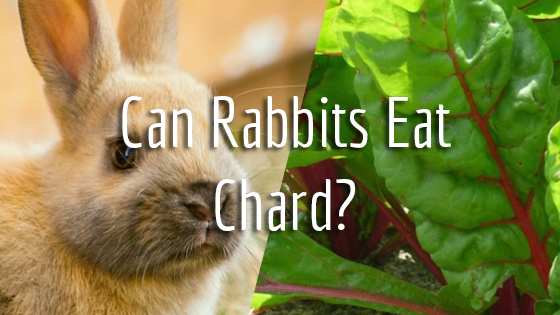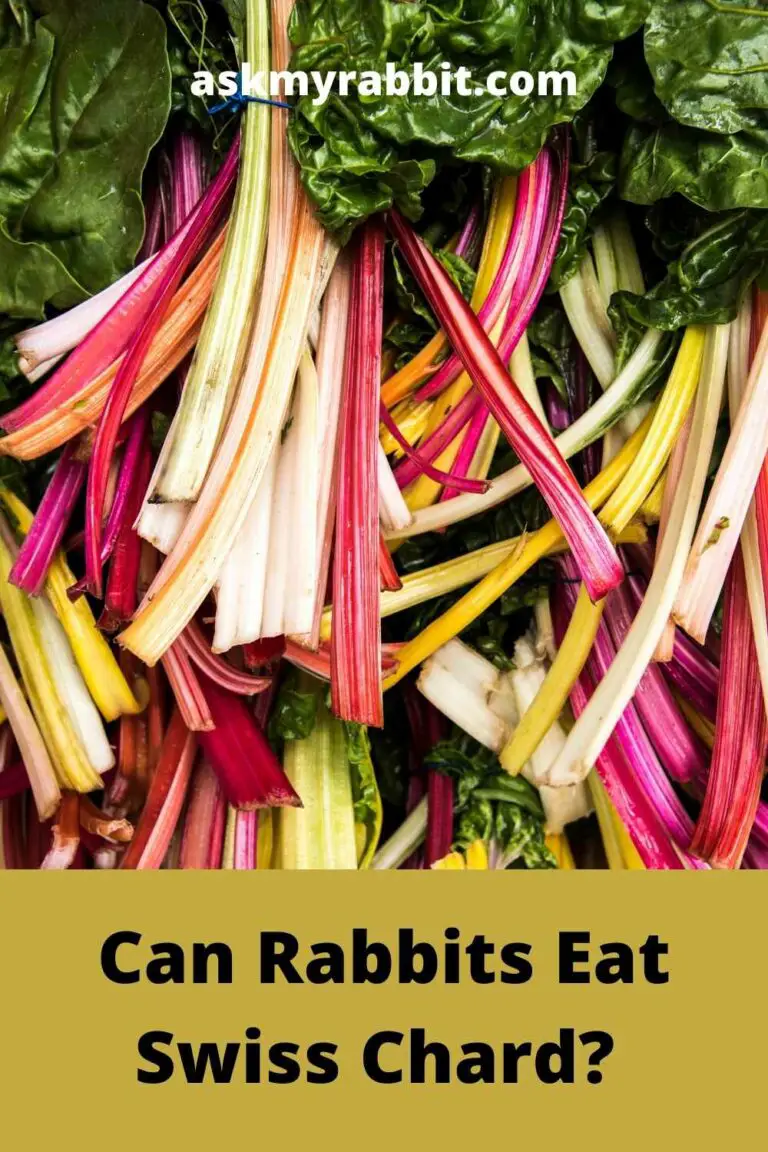Rabbits are adorable and lovable pets that require a balanced and nutritious diet to thrive. As a responsible rabbit owner, it’s essential to understand what foods are safe for your furry friend. In this article, we will explore the question, “Can rabbits eat chard?” and delve into the nutritional benefits and potential risks associated with feeding chard to rabbits.

The Nutritional Value of Chard for Rabbits
Chard, also known as Swiss chard or silverbeet, is a leafy green vegetable that belongs to the same family as spinach and beets. It is packed with essential nutrients that can contribute to your rabbit’s overall well-being. Chard is an excellent source of vitamins A, C, and K, as well as minerals like calcium, magnesium, and potassium. These nutrients play a vital role in maintaining healthy bones, teeth, and a robust immune system for your furry companion.
Feeding Chard to Rabbits: Dos and Don’ts
While chard can be a nutritious addition to your rabbit’s diet, it’s crucial to follow some guidelines to ensure their safety and well-being. Here are some dos and don’ts when it comes to feeding chard to rabbits:
Dos:
- Introduce chard gradually: Start by offering small amounts of chard to your rabbit and observe their reaction. If they tolerate it well, you can gradually increase the portion size.
- Wash thoroughly: Rinse the chard leaves thoroughly to remove any dirt, pesticides, or chemicals that may be present.
- Offer variety: Chard should be part of a diverse diet for your rabbit. Combine it with other leafy greens, hay, and fresh water to provide a balanced meal.
Don’ts:
- Avoid excessive consumption: While chard is nutritious, it should be given in moderation. Too much chard can lead to digestive issues such as diarrhea or gas.
- Skip the stems: The stems of chard can be tough and difficult for rabbits to chew. It’s best to remove the stems and offer only the leafy greens.
Potential Risks and Precautions
Although chard is generally safe for rabbits, there are a few risks and precautions to keep in mind:
- Oxalates: Chard contains oxalates, which can interfere with calcium absorption and potentially lead to the formation of bladder or kidney stones in some rabbits. If your rabbit has a history of urinary issues, it’s best to consult with a veterinarian before introducing chard into their diet.
- Allergies or sensitivities: Just like humans, rabbits can have individual allergies or sensitivities to certain foods. Monitor your rabbit closely after introducing chard and watch for any signs of adverse reactions such as itching, swelling, or gastrointestinal distress. If any symptoms occur, discontinue feeding chard immediately and seek veterinary advice.
Conclusion
In conclusion, rabbits can eat chard as part of a balanced diet. It provides essential vitamins and minerals that contribute to their overall health. However, it’s important to introduce chard gradually, wash it thoroughly, and offer it in moderation. Remember to remove the tough stems and be cautious if your rabbit has a history of urinary issues. By following these guidelines, you can safely incorporate chard into your rabbit’s diet and provide them with a variety of nutritious options.
FAQs
1. Can rabbits eat chard every day?
While rabbits can eat chard, it is not recommended to feed it to them every day. Chard should be part of a diverse diet that includes other leafy greens, hay, and fresh water.
2. How much chard can I feed my rabbit?
Start by offering a small amount of chard and observe your rabbit’s reaction. If they tolerate it well, you can gradually increase the portion size. However, remember to feed chard in moderation to avoid digestive issues.
3. Can rabbits eat chard stems?
It’s best to remove the tough stems of chard before feeding it to rabbits. The stems can be difficult for them to chew and digest.
4. Are there any risks associated with feeding chard to rabbits?
Chard contains oxalates, which can interfere with calcium absorption and potentially lead to bladder or kidney stones in some rabbits. If your rabbit has a history of urinary issues, it’s best to consult with a veterinarian before introducing chard into their diet.
5. What are some alternative leafy greens I can feed my rabbit?
There are several safe leafy greens that you can offer to your rabbit, including romaine lettuce, kale, spinach, and cilantro. Remember to introduce new foods gradually and monitor your rabbit for any adverse reactions.

